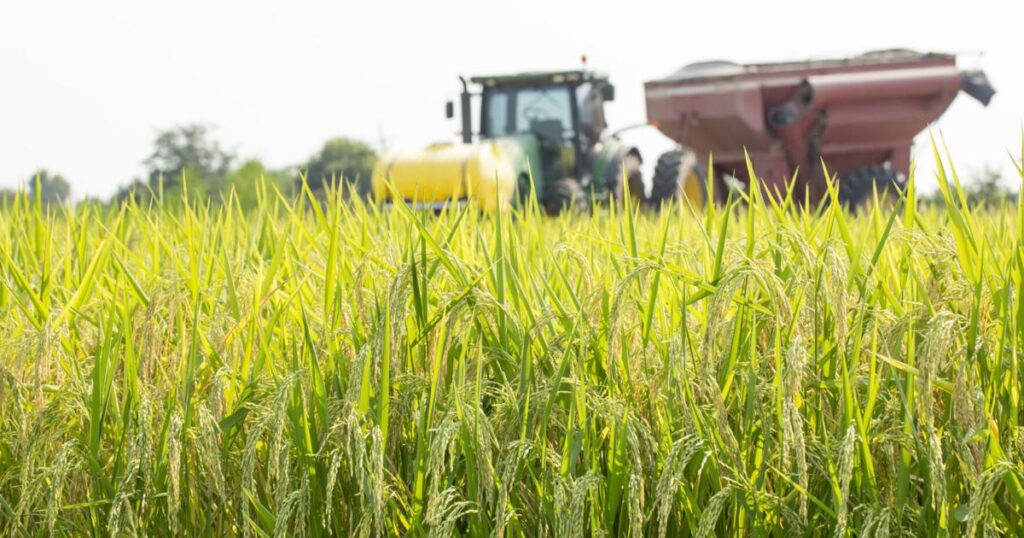USAID’s Future Sparks Concerns Among Louisiana Rice Farmers
Changes within the U.S. Agency of International Development (USAID) are stirring unease among Louisiana’s rice producers. The agency, a longstanding pillar in global food aid, faces significant workforce reductions and program freezes under recent administration efforts.
Michael Fruge, a second-generation farmer and owner of Parish Rice in Eunice, noted that discussions about USAID have been rare at agricultural conferences. “They talk about Mexico because it changes,” Fruge explained. “They talk about India because they put export bans on long grain rice. But food aid has just been there. It just hasn’t been talked about because it’s just there.”
President Donald Trump’s administration initiated plans to dismantle USAID, which has been pivotal in providing food assistance since 1968. Earlier this month, Trump and billionaire Elon Musk orchestrated layoffs affecting thousands of USAID employees and halted numerous international programs as part of a broad freeze on foreign aid.
On Friday, a federal judge responded to a lawsuit from two unions by issuing a restraining order. This temporary measure blocks the administration’s strategy to reduce USAID’s workforce from 10,000 to fewer than 300 employees. Despite this judicial intervention, the agency’s international aid programs remain suspended, potentially impacting Louisiana farmers.
The state's rice growers are integral to programs such as Food for Peace and McGovern-Dole International Food for Education and Child Nutrition. Rice grown in Louisiana is distributed globally to countries including Haiti, Iraq, and Ukraine through ports in Houston and New Orleans.
According to Michael Klein of the USA Rice Federation, food aid ranks among the top 10 purchasers of rice in the United States. In 2024, USAID bought over $126 million worth of U.S.-produced rice, valued for its high caloric content and long shelf life. While precise figures on Louisiana’s rice contributions to USAID programs are unclear, the sector plays a crucial role in rice exports from regions such as Acadia, Jeff Davis, Vermilion, Evangeline, and St. Landry parishes.
"The reality is we just don’t even know the full extent of what is happening," Klein stated. "It’s concerning, but we just don’t know how it’s going to impact the industry as a whole or Louisiana specifically."
Significant investments from USAID have supported major rice milling operations in Louisiana, including Supreme Rice in Crowley and Farmers Rice Milling Company in Lake Charles. However, David Warrington, CFO of Powell Group (owner of Farmers), confirmed that his company holds no contracts with USAID. Supreme Rice’s CEO, Bobby Hanks, did not respond to requests for comment. Both CEOs have historically supported food aid initiatives, with Hanks citing former Secretary of Defense James Mattis: “if goodwill programs like these are not fully funded, then I need to buy more ammunition,” as noted in a USA Rice press release.
State Rep. Troy Romero, a Republican from Jennings and chair of the agricultural committee, is actively working to secure continued USAID benefits for Louisiana rice farmers. While Romero expressed optimism that essential food aid programs would remain funded, he acknowledged uncertainties. “When the Trump administration looked into USAID, they found that numerous dollars were going to some crazy things that conservatives may have a problem with,” Romero said. “They’re going to reinstate the stuff that is really important. I cannot imagine that program—as good as it is—would be one of the ones that they would cut out.”
Louisiana rice is heavily reliant on exports, with approximately 75% of the state's rice acreage located in Acadia, Jeff Davis, Vermilion, Evangeline, and St. Landry parishes. Fruge estimated that 5% to 10% of rice exports are dedicated to food aid programs. Disruptions in this market could lead to overstock and reduced prices as mills seek alternative international buyers.
Despite concerns, Fruge recognizes issues within USAID and the necessity for reform. He expressed uncertainty about the administration’s methods but remains hopeful about their intentions. “If Elon and President Trump are going to fix wasteful spending, how else do you go about it? Are they doing it the right way? I don’t know. But I would like to think they’re doing it the best way they know how,” Fruge commented.
